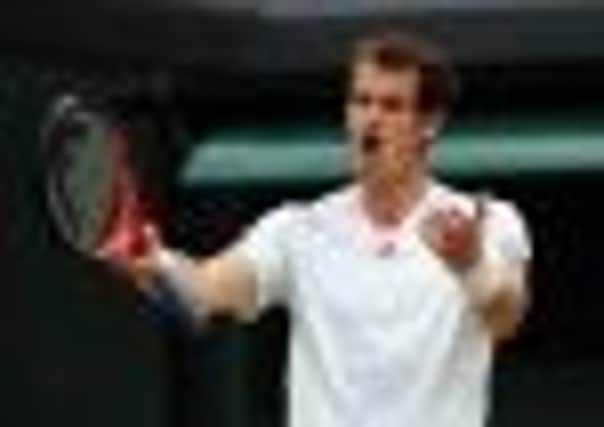Lendl well-placed to tell Murray best chance has not slipped away


It will come as no solace to Murray right now that his defeat in the Wimbledon final to a man rapidly establishing himself as the greatest tennis player of all time was one that came down to small margins.
The inch-long backhand on break point at 4-4 in the second set which would have left him serving for a two-set lead. The forehand down the line that would have given him an early break in the fourth, but landed just wide.
Advertisement
Hide AdAdvertisement
Hide AdMake no mistake, Murray had his chances. Federer, having lost the first set, briefly looked there for the taking. But a man with 16 grand slam titles to his name entering the final was always likely to find a way to claw back the most hopeless of causes.
It was supposedly written in the stars for Murray. In a special summer of British sport, he was destined to join Virginia Wade as a British Wimbledon singles winner in a Jubilee year.
The Olympics are looming, a Briton is leading the Tour de France, and Sheffield’s Jonny Marray had served up the most improbable of appetisers by going from hopeless wild card to Wimbledon doubles champion the night before.
Ultimately, though, it might be said that fate conspired against Murray.
Advertisement
Hide AdAdvertisement
Hide AdThe closure of the Centre Court roof in the third game of the third set undoubtedly favoured indoor specialist Federer, whose shots glued to the lines with renewed purpose upon the re-start.
We learned much about two men yesterday. Firstly, that Federer, with his first grand slam title in two and a half years at the age of 30, can give Rod Laver a run for his money at the summit of the lists of all-time greats. Laver already puts Federer top.
But perhaps we learned more about Murray. We learned that he belongs on the biggest of stages, and that talk of the world’s top three – Federer, Rafael Nadal and Novak Djokovic – disappearing over the horizon is not so much premature as plain wrong.
Talk of Murray missing his best chance is palpable nonsense. This is not 2002, when Tim Henman’s desperate quest was lent extra urgency by the knowledge that the likes of Federer and Lleyton Hewitt were shaping up to start their own eras of dominance.
The rising star these days is Murray himself.
Advertisement
Hide AdAdvertisement
Hide AdNext year, Federer will be one year older and Murray will be the outstanding challenger on his home court.
When he emerges from his darkest sporting hour, Murray will know that more than most.
In his box, he has a coach in Ivan Lendl whose career defines perseverance. In 1982, Lendl skipped Wimbledon, saying he was “allergic to grass”. He would go on to appear in two All England Club finals.
Like Murray, Lendl lost his first four grand slam finals. He would play a total of 19, and win eight. The statistics alone suggest there can hardly be a better man to haul Murray out of his trough of despair and on to his finest hours.
Advertisement
Hide AdAdvertisement
Hide AdWhen the chalk dust has settled and the Olympics have begun to dominate the nation’s sporting consciousness, Murray will also be able to reflect on a campaign through which it can be said he has been taken belatedly to Britain’s heart.
His outpouring of emotion during the on-court interviews revealed a seldom-seen side of Murray’s character, and it is one which ought to ensure his future quests are backed without so many tiresome jibes about his demeanour or his on-court temperament.
In defeat, Murray has come of age in so many ways.
Thirty-nine different men have held aloft the famous Wimbledon men’s singles trophy since Perry won his third title 76 long years ago.
If Murray can become the 40th, his tears will be of joy, and they will be shared by almost all.